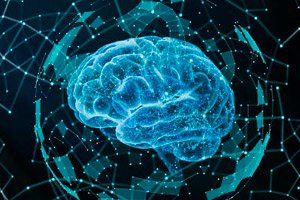
All iLive content is medically reviewed or fact checked to ensure as much factual accuracy as possible.
We have strict sourcing guidelines and only link to reputable media sites, academic research institutions and, whenever possible, medically peer reviewed studies. Note that the numbers in parentheses ([1], [2], etc.) are clickable links to these studies.
If you feel that any of our content is inaccurate, out-of-date, or otherwise questionable, please select it and press Ctrl + Enter.
AI predicts neuroscience research results better than experts
Last reviewed: 03.07.2025
 ">
">A study by researchers at University College London (UCL) has shown that large language models (LLMs) such as GPT can predict neuroscience research outcomes with accuracy exceeding that of human experts. The work, published in Nature Human Behaviour, demonstrates how artificial intelligence trained on large text datasets can not only extract information but also identify patterns to predict scientific outcomes.
A New Approach to Science Forecasting
According to the study’s lead author, Dr Ken Lo (UCL Psychology & Language Sciences), the development of generative AI such as ChatGPT has opened up vast possibilities for generalization and knowledge extraction. However, rather than studying the AI’s ability to analyze past information, the researchers decided to investigate whether the AI could predict future experimental outcomes.
"Scientific progress often involves trial and error, which takes time and resources. Even experienced researchers can miss important details in the literature. Our work shows that LLMs can detect patterns and predict experimental outcomes," Dr. Lo said.
BrainBench: AI and Expert Testing
To test the capabilities of LLMs, the researchers created a tool called BrainBench, which includes pairs of scientific abstracts from neuroscience:
- One abstract contains the actual research result.
- The second is a modified but plausible result created by experts.
15 language models and 171 neuroscience experts were tested for their ability to distinguish real from fake results. The results were impressive:
- AI showed an average accuracy of 81%, while experts scored only 63%.
- Even specialists with the highest self-assessment of knowledge achieved only 66%.
Improved models and perspectives
The scientists also adapted the open-source LLM (a version of Mistral), training it on scientific literature on neuroscience. The resulting model, called BrainGPT, demonstrated even higher accuracy — 86%.
"Our work shows that AI can become an integral part of the experimental design process, not only making the work faster, but also more efficient," said Professor Bradley Love (UCL).
Opportunities and Challenges
The researchers suggest that their approach can be adapted to a variety of scientific disciplines. However, the results of the study raise an important question: is modern scientific research innovative enough? The high accuracy of AI in forecasting suggests that many scientific findings are consistent with existing patterns.
"We are building AI tools that will help scientists design experiments and predict possible outcomes, speeding up iterations and making more informed decisions," Dr Lo added.
This breakthrough in the use of AI promises to accelerate scientific discovery and improve the efficiency of research around the world.
